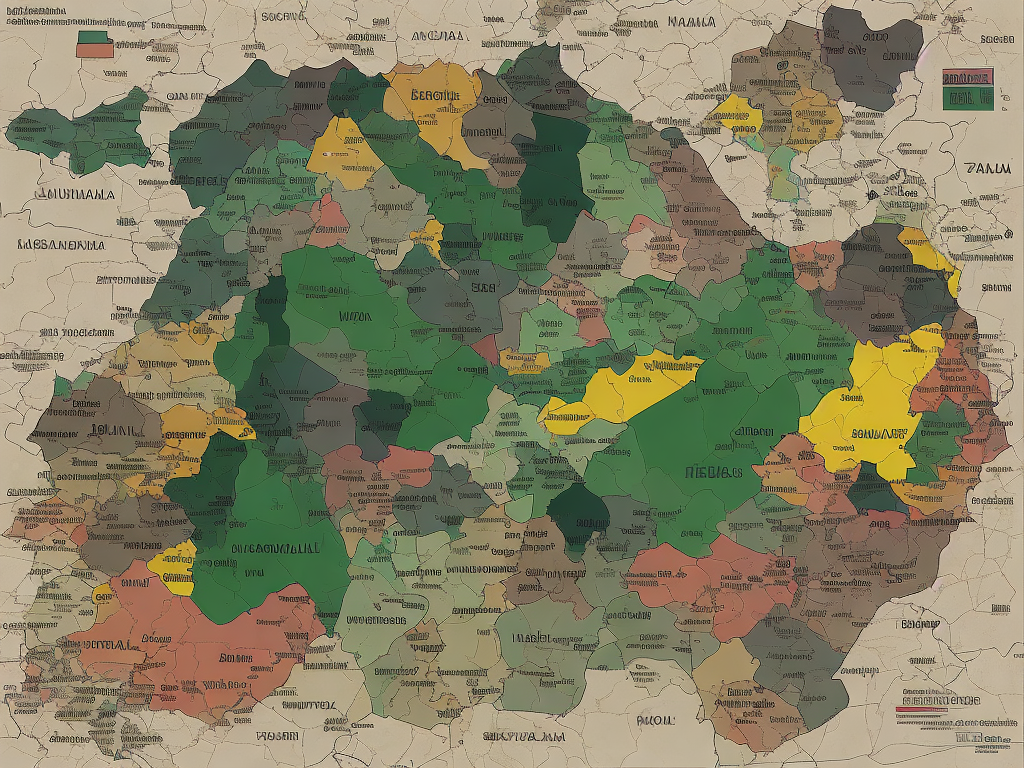
The Middle East has been a hotbed of conflict and tension for decades, with various groups and organizations vying for power and influence. Two of the most prominent and controversial organizations in the region are Hamas and Hezbollah. While both groups are classified as terrorist organizations by several countries, there are significant differences between them in terms of their origins, goals, and methods of operation.
Hamas, an acronym for Harakat al-Muqawama al-Islamiya (Islamic Resistance Movement), was established in 1987 during the First Intifada, a Palestinian uprising against Israeli occupation in the Gaza Strip and West Bank. It emerged as an offshoot of the Muslim Brotherhood, a Sunni Islamic movement founded in Egypt in the 1920s. Hamas was formed with the objective of liberating all of Palestine, including the modern-day state of Israel, and establishing an Islamic state in its place.
Hezbollah, on the other hand, was founded in Lebanon in the early 1980s following the Israeli invasion of Lebanon. Inspired by the Iranian revolution and Shia Islamist ideology, Hezbollah sought to resist Israeli occupation in southern Lebanon and establish an Islamic state based on the principle of Wilayat al-Faqih, or guardianship of the Islamic jurist. It has close ties to Iran and is widely regarded as Tehran's proxy in the region.
While both Hamas and Hezbollah are driven by religious ideology and have significant support among their respective communities, there are key differences in terms of their operational focus and geographical reach. Hamas primarily operates in the Palestinian territories, specifically Gaza, and has been in control of the Gaza Strip since 2007. It operates schools, hospitals, and social welfare programs to gain the support of the local population and maintain its influence. It also engages in armed resistance against Israeli forces, launching rockets and carrying out suicide bombings.
Hezbollah, on the other hand, is primarily active in Lebanon but has a widespread influence throughout the region. It has a strong military wing and maintains a significant arsenal of rockets and missiles, much of which is supplied by Iran. In addition to its military activities, Hezbollah has extensive social, political, and economic networks within Lebanon and is widely regarded as a state within a state. It has its own media outlets, educational institutions, and even provides health care and social services to its supporters.
Another key difference between Hamas and Hezbollah is their relationship with the wider regional powers. Hamas has often found itself isolated within the Arab world due to its ideological differences with several Arab states. While it has received financial and political support from countries like Qatar and Turkey, it has faced significant opposition from other Arab states, such as Egypt and Saudi Arabia, due to its affiliation with the Muslim Brotherhood and its close ties to Iran.
Hezbollah, on the other hand, enjoys consistent support from Iran, which considers the group a strategic asset in its confrontation with Israel and its regional rivals. Iran provides Hezbollah with financial aid, weapons, and training, enabling it to maintain a powerful military force. Hezbollah has also been involved in supporting the Assad regime in Syria's civil war, further bolstering its regional influence.
Despite the differences between Hamas and Hezbollah, both groups share some similarities. Both are classified as terrorist organizations by several countries, including the United States and the European Union. They have been involved in numerous attacks against Israeli targets, resulting in the loss of innocent lives. Both organizations also have a strong focus on social services, providing their supporters with education, healthcare, and welfare support.
However, it is important to note that the term "terrorist organization" is highly contentious and can depend on one's political perspective. Supporters of Hamas and Hezbollah argue that they are resistance movements fighting against occupation and oppression, while their detractors view them as violent extremist groups that engage in indiscriminate attacks against civilians.
In conclusion, Hamas and Hezbollah are two prominent organizations in the Middle East with significant differences in terms of their origins, goals, and methods of operation. While Hamas primarily operates in the Palestinian territories and is driven by the goal of liberating all of Palestine, Hezbollah is rooted in Lebanon and seeks to establish an Islamic state based on Shia Islamist ideology. They also differ in terms of their relationships with regional powers, with Hamas facing isolation due to its ties to the Muslim Brotherhood and Hezbollah enjoying consistent support from Iran. Despite their differences, both organizations are classified as terrorist organizations by several countries and have been involved in attacks against Israeli targets.
 Self-Instruct
Self-Instruct